Living in the age of convenience, we crave solutions that offer functionality without the hefty price tag or permanent commitment. For car owners, this desire often translates into the question: “Garage tent or traditional garage?”
Garage tents, also known as portable garages or car shelters, have emerged as a tempting alternative to brick-and-mortar garages. But before you jump on this seemingly budget-friendly bandwagon, let’s delve into the world of garage tents, exploring their pros and cons, different types, and whether they deserve a spot on your driveway.
To explore specific garage tent options, check out these best garage tents under $300 where you’ll find top picks within your budget!
What is a Garage Tent?
Picture a sturdy, tent-like structure made from metal poles and a weatherproof fabric cover. That’s essentially a garage tent. These handy shelters offer a temporary or semi-permanent solution for protecting your vehicles from the elements, like sun, rain, snow, hail, and even bird droppings.
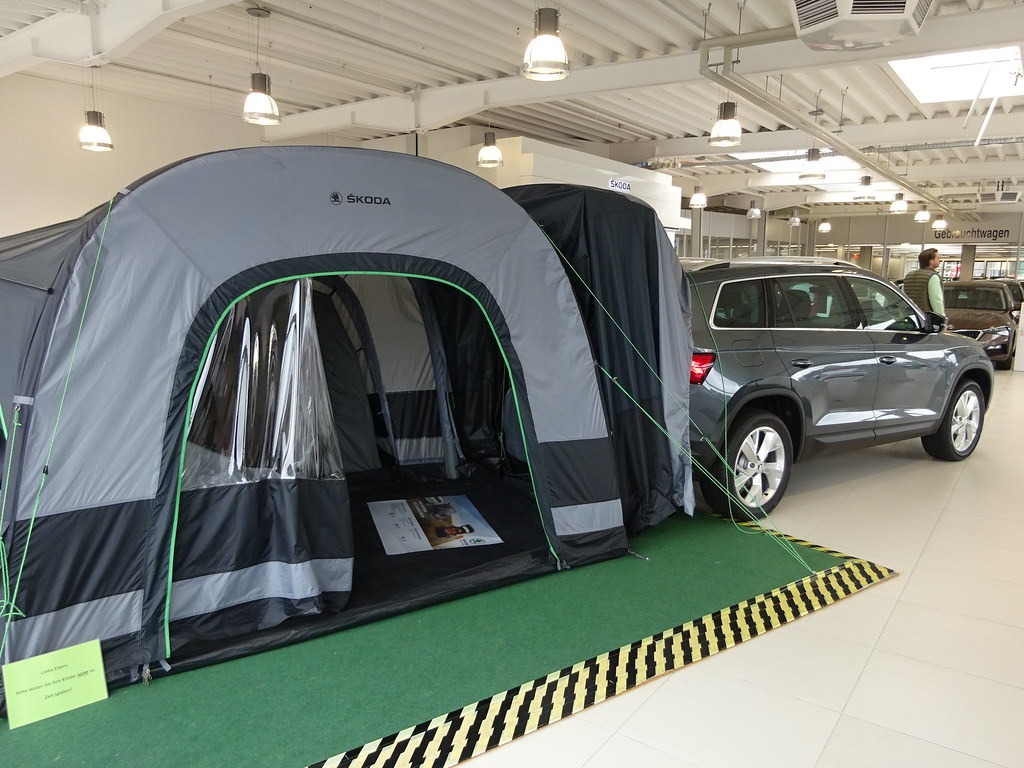
You may also like: 7 Best 120V Heaters for Garage
Types of Garage Tents
The world of garage tents isn’t a one-size-fits-all affair. Here are the main types you’ll encounter.
While the basic categories of garage tents offer an initial framework, there’s a wealth of nuances within each type that deserves exploration. Let’s dive into the specifics, helping you identify the perfect shelter for your needs:
Basic Single-Car Shelters
- Think Budget-Friendly Minimalism: These shelters prioritize affordability, often sacrificing bells and whistles for a streamlined frame and basic cover. Perfect for protecting your car from sun, rain, and bird droppings, they’re ideal for tight budgets or temporary needs.
- Subcategories: Within this category, you’ll find shelters with varying roof styles (curved, peaked, or flat) and frame materials (steel, aluminum, or polyvinyl chloride). Choose based on your aesthetic preferences and desired level of sturdiness.
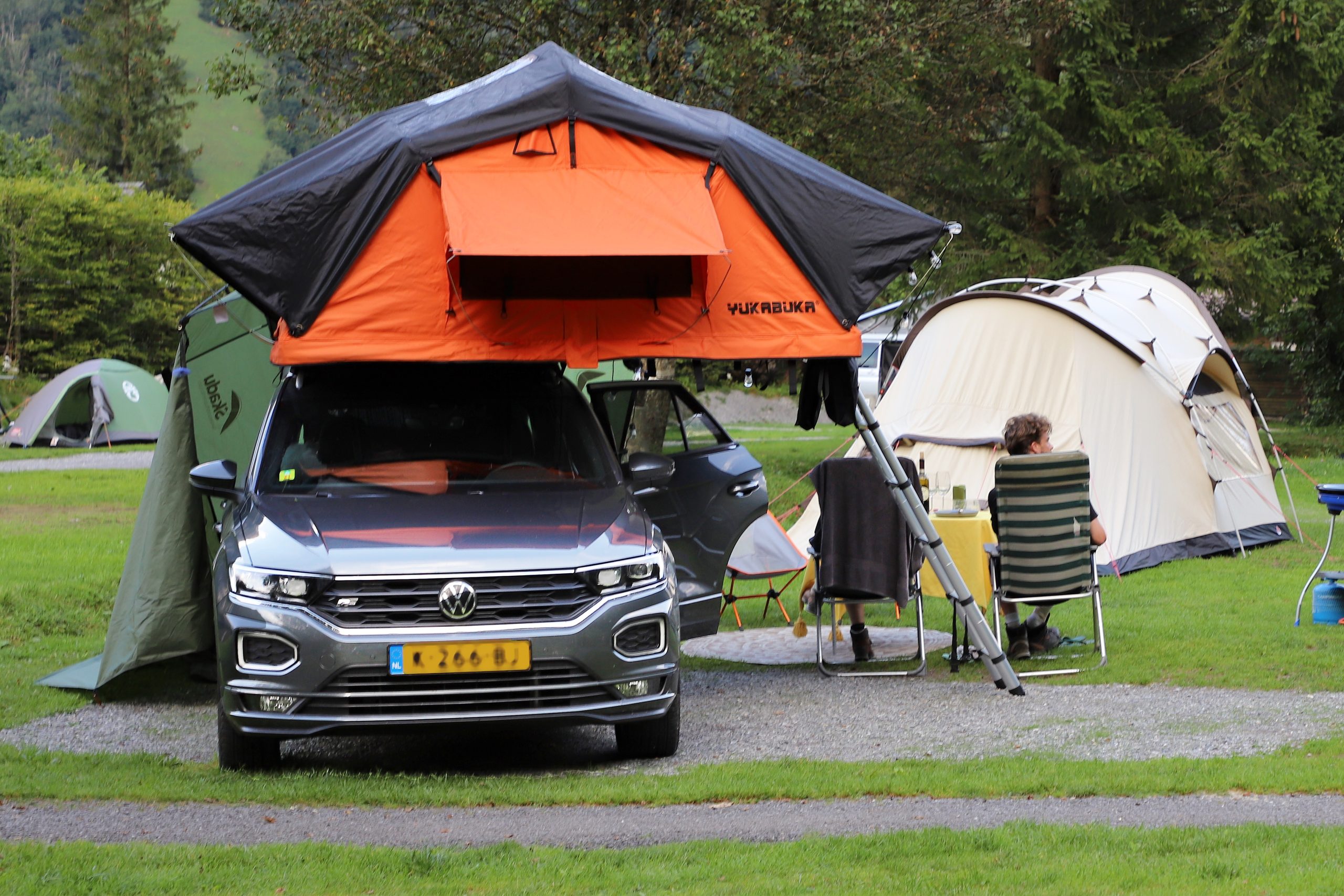
Double-Car Shelters
- Family-Sized Protection: These spacious garages comfortably accommodate two vehicles, making them ideal for families with multiple cars or car enthusiasts with prized collections. Look for features like double doors and wider entrances for easy access.
- Tandem vs. Side-by-Side Variations: Decide if you prefer your cars parked one behind the other (tandem) or side-by-side. Tandem shelters are typically more space-efficient, while side-by-side offer easier in-and-out access.
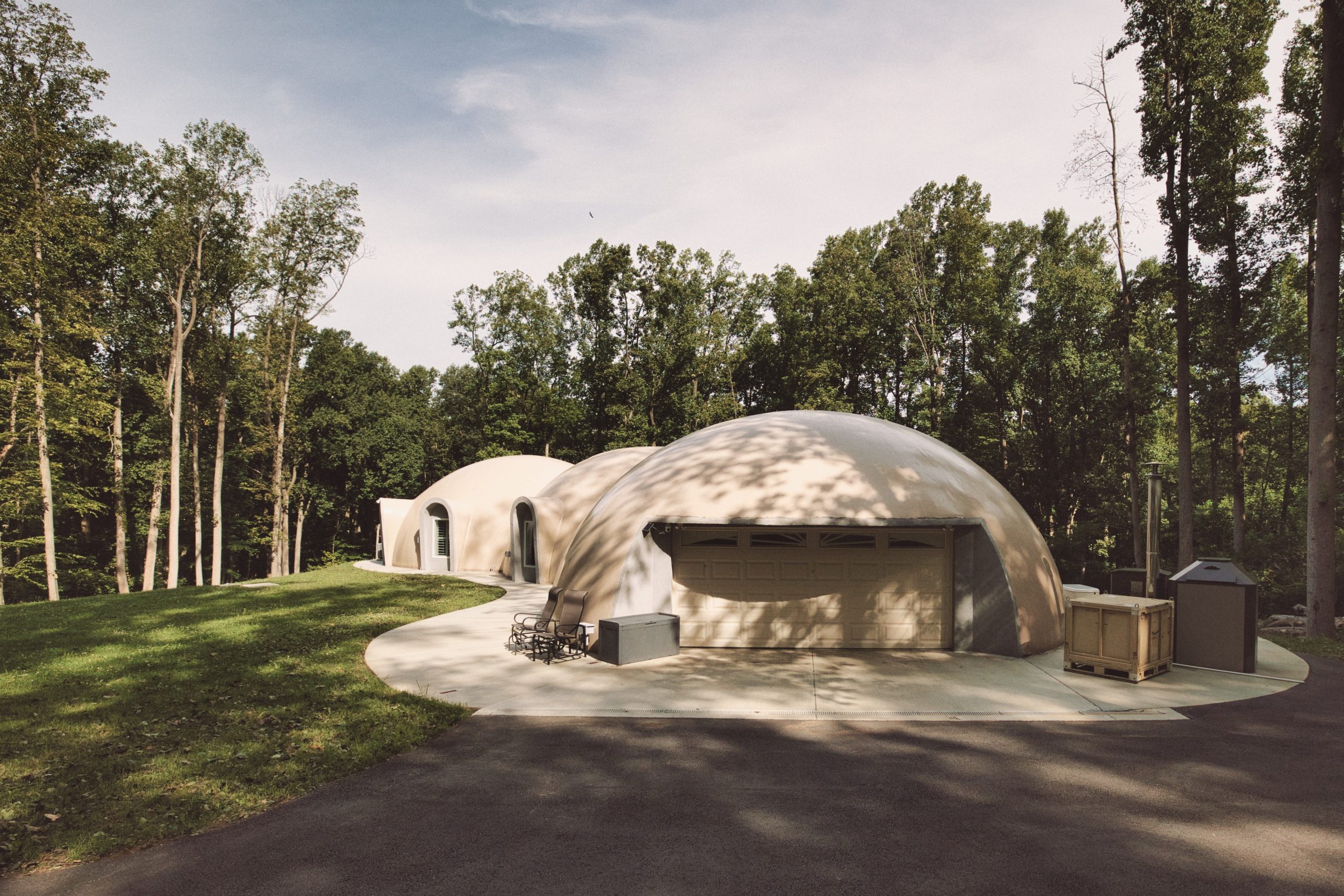
Heavy-Duty Shelters
- Built to Weather the Storm: These brawny shelters boast reinforced frames and heavy-duty covers designed to withstand harsh weather conditions like strong winds, snow loads, and even hail. Perfect for areas prone to extreme weather or those who store valuable vehicles inside.
- Material Matters: Look for shelters with galvanized steel frames for rust resistance and thicker fabric covers (ideally with a ripstop weave) for enhanced durability. Consider snow load capacity if heavy snowfall is a concern.
Pop-Up Shelters
- Instant Gratification in Fabric: These shelters, true to their name, pop up in minutes, offering temporary protection for events, car shows, or backyard projects. Their portability makes them ideal for on-the-go car enthusiasts.
- Lightweight Champions: Expect less sturdy frames and thinner covers compared to other types. While convenient for short-term use, they may not be suitable for long-term car storage or harsh weather conditions.
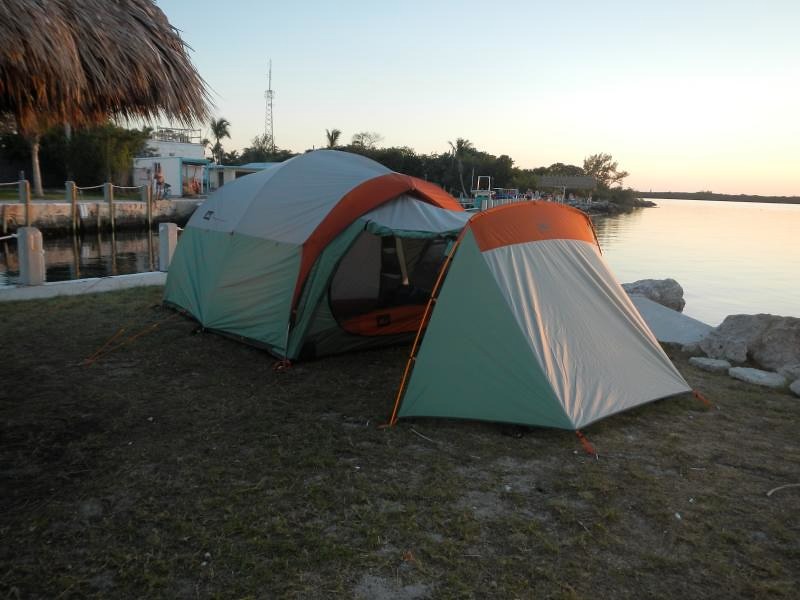
High-Peak Shelters
- Tall Order, Well Met: These towering shelters provide ample headroom, perfect for working on your car, storing taller vehicles like RVs or SUVs, or simply creating a more airy feeling. They often offer additional features like ventilation panels and skylights.
- Size Matters: Be sure to measure your vehicle’s height and ensure the peak clearance accommodates it comfortably. Also, consider wind stability, as the increased height can make them more susceptible to strong gusts.
Remember, the “perfect” garage tent is subjective. By understanding the diverse options available and tailoring your choice to your specific needs and budget, you can find the ideal shelter to keep your beloved vehicles safe and sound.

You may also like: 7 Best Garage Radios with Bluetooth
Pros of Garage Tents
Affordability: Your Wallet’s Best Friend
Forget hefty construction costs and permits! Garage tents are the undisputed lightweight champion of affordability. Compared to traditional garages, which can easily set you back thousands, even high-quality garage tents typically cost a fraction of the price. This makes them ideal for budget-conscious car owners, first-time homeowners, or anyone looking for a temporary or flexible solution.
Portability: Flexibility at Your Fingertips
Imagine needing to relocate your car shelter in a flash. With a garage tent, that’s not a problem! Unlike permanent garages, these fabric havens offer unmatched portability. You can easily disassemble them, move them to a new location, and reassemble them within minutes. This makes them perfect for renters, homeowners with changing needs, or even those who want to take their car protection on the go for events or shows.

Quick Setup: Time is Money (and Saved!)
Forget about permits, contractors, and lengthy construction delays. Most garage tents come with clear instructions and require minimal tools or expertise to set up. In some cases, you can even have your shelter standing strong in less than 10 minutes! This translates to valuable time saved and less hassle, allowing you to focus on what truly matters.
Space-Saving: Making the Most of Limited Square Footage
Living in a cozy urban condo or have a backyard that resembles a postage stamp? No worries! Garage tents don’t require a permanent foundation or eat up precious square footage. Their compact footprint makes them ideal for maximizing space in smaller properties or squeezing in that extra parking spot you desperately need.
Permits: Simplifying the Process (Sometimes)
Depending on your local regulations, garage tents may be exempt from the need for building permits, unlike their permanent counterparts. This can significantly streamline the process, saving you time, paperwork, and potentially even extra fees. However, it’s crucial to always check your local zoning regulations before investing in a garage tent, as permit requirements can vary widely.

Cons of Garage Tents
Durability: Weathering the Storm (Within Limits)
While garage tents offer decent protection from the elements, it’s important to be realistic about their limitations. Compared to the sturdy brick-and-mortar walls of a traditional garage, they may not handle extreme weather conditions like hurricanes, blizzards, or torrential downpours as well. If you live in an area prone to such weather events, investing in a heavy-duty tent with reinforced frames and thicker covers is essential.
Security: Keeping Your Precious Ride Safe
While some garage tents offer lockable doors and additional security features, they generally aren’t as secure as traditional garages. The fabric walls and doors can be more easily breached than concrete or brick, making them more vulnerable to theft or vandalism. If keeping your car ultra-secure is a top priority, a traditional garage might be a better option.

Temperature Control: Finding the Comfortable Middle Ground
One thing garage tents don’t offer is insulation. This means they can get scorching hot in the summer and freezing cold in the winter, which can impact your car’s performance and comfort. If you live in a region with extreme temperatures, consider adding ventilation panels or using portable air conditioning units to create a more comfortable environment inside your tent.
Aesthetics: Finding a Balance Between Function and Form
Let’s be honest, traditional garages can add architectural charm to a property. While garage tents may not boast the same curb appeal, some models offer sleek designs and color options that can blend seamlessly with your existing landscaping or home style. Additionally, you can personalize your tent by adding lighting, plants, or decorative elements. Remember, with a little effort, you can make your garage tent both functional and aesthetically pleasing.

Regulations: Avoiding Zoning Roadblocks
Before bringing home that shiny new garage tent be sure to check your local zoning regulations! While many areas allow garage tents without requiring permits, others may have limitations on size, type, or placement.
Some communities might restrict the use of these structures to driveways or backyards, while others may prohibit them entirely. Don’t risk a zoning violation (and potential fines) – make a quick call to your local building department or check their website for clear guidelines before making your purchase.
You may also like: 7 Quietest Garage Fans
Is a Garage Tent Worth Buying?
The answer, like most things in life, depends. Here are some factors to consider. Let’s delve into each factor, offering insights beyond simple yes-or-no answers.
Budget
Garage tents are undeniably budget-friendly champions, often costing a fraction of their permanent counterparts. However, this cost advantage can be nuanced. For temporary needs or short-term use, a basic garage tent might be perfect. But if you require long-term protection, consider the potential longevity of the tent you choose.
Investing in a sturdy, high-quality model might be more expensive upfront, but could ultimately prove more cost-effective in the long run by lasting longer and requiring fewer replacements.
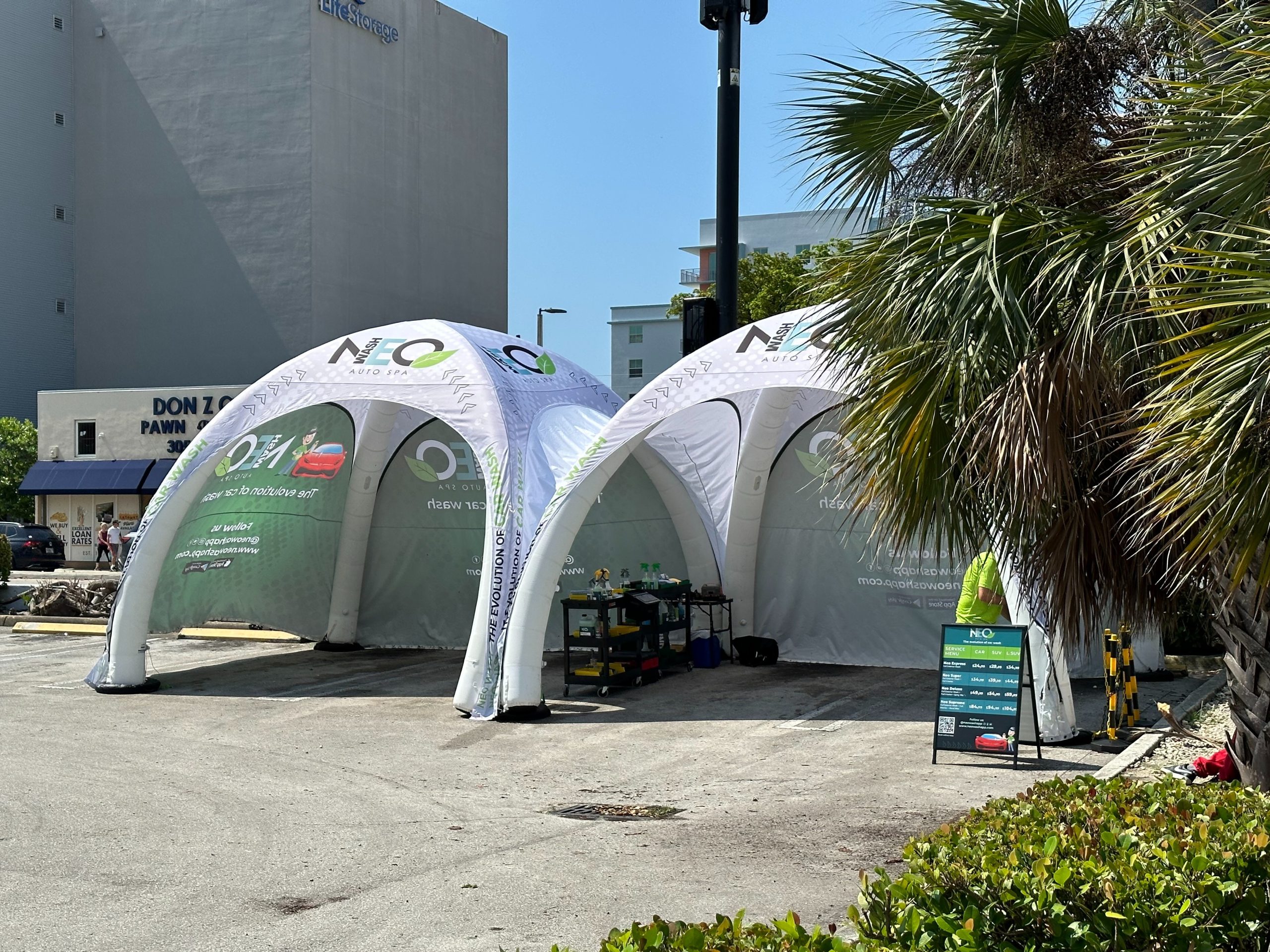
Needs
Do you simply need basic protection from the elements, or do you envision your car shelter as a multi-functional space? If the former is true, a basic single-car shelter might suffice. But if you plan to work on your car, store tools or equipment, or even create a cozy outdoor workshop, consider models with higher headroom, additional features like ventilation panels or lighting, and possibly even double-car capacity.
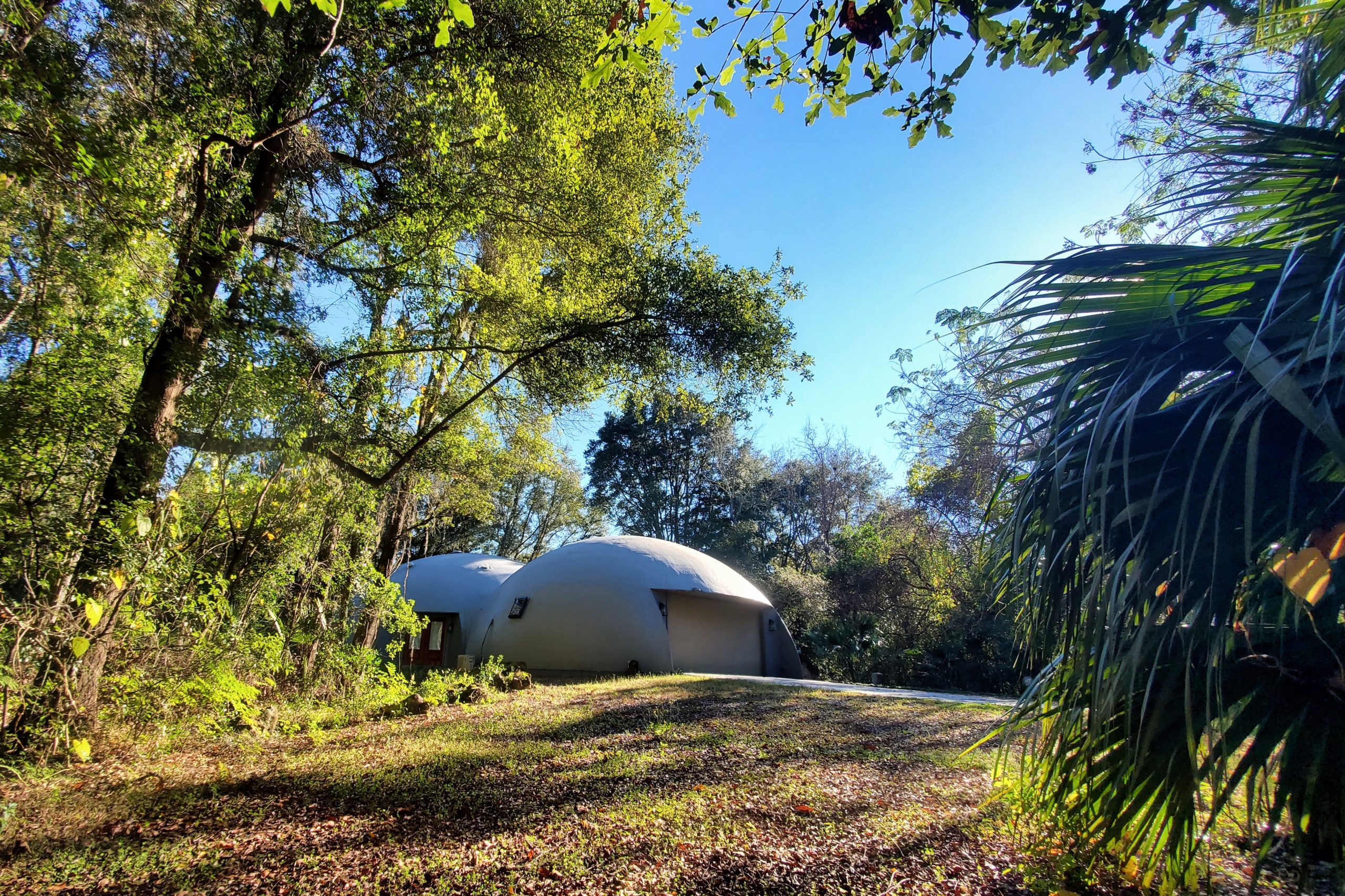
Climate
While garage tents offer decent protection from everyday weather, their suitability for extreme climates depends on your specific location and the severity of the elements. If you live in a region prone to blizzards, hurricanes, or scorching heat, a basic garage tent might not be your best bet.
Invest in a heavy-duty model with reinforced frames, thicker covers, and features like snow load capacity for harsh conditions. Remember, a tent that collapses under a heavy snowfall defeats the purpose of protection.
Space
Garage tents are a blessing for those with limited space. They don’t require permanent foundations and can often be tucked away in driveways or backyards.
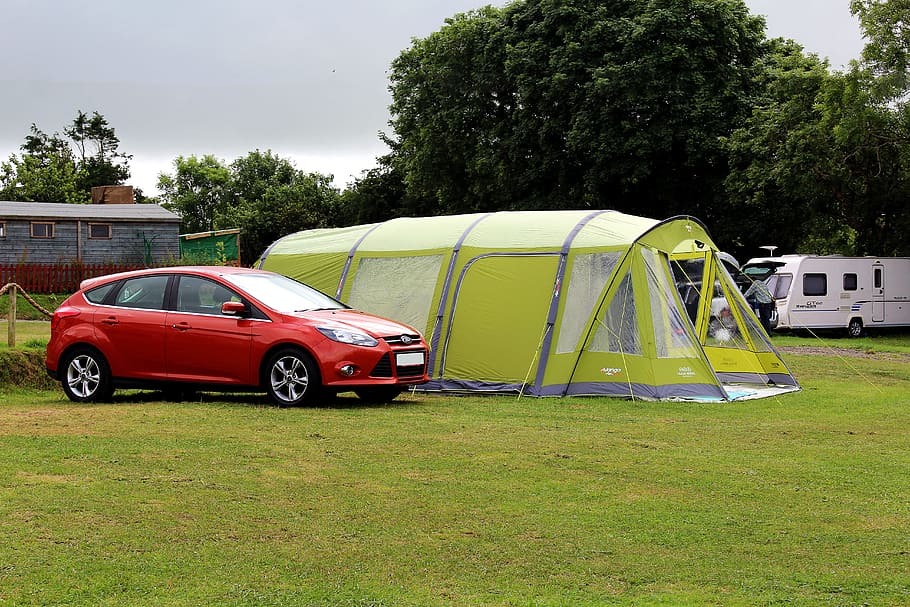
However, consider the size of your vehicle and the intended use of the tent. If you have a large SUV or truck, or plan to store additional items besides your car, ensure you choose a model with sufficient headroom, width, and overall footprint. Remember, a cramped tent becomes less inviting and can even damage your car if maneuvering becomes difficult.
Aesthetics
Garage tents may not hold the same architectural charm as a brick-and-mortar garage, but aesthetics don’t have to be an afterthought. Choose models with sleek designs and color options that complement your existing landscaping or home style. You can even personalize your tent by adding decorative elements like plants or lighting. Ultimately, remember that functionality and aesthetics can co-exist – you can prioritize both without sacrificing protection or style.

Beyond these five pillars, consider additional factors like security needs, potential zoning regulations, and your individual preferences for convenience and maintenance. By asking yourself the right questions and carefully weighing the pros and cons, you’ll be able to make an informed decision about whether a garage tent is a worthy investment for your car and your specific situation.
Making the Most of Your Garage Tent
If you decide a garage tent is right for you, here are some tips for maximizing its lifespan and usefulness:
- Choose a high-quality tent: Invest in a well-made tent from a reputable brand.
- Anchor it securely: Use ground anchors or tie-downs to prevent the tent from being blown away in windy conditions.
- Maintain it properly: Regularly clean and inspect the tent for tears or damage, and replace the cover if necessary.
- Consider additional features: Look for tents with features like snow load capacity, ventilation systems, and lockable doors.

You may also like: 7 Best Garage Door Insulation Kits
Alternatives to Garage Tents
- Car covers: Offer basic protection from the elements but can scratch your car and are not ideal for long-term storage.
- Open carports: A permanent structure offering protection from sun and rain but less security than a garage.
- Metal carports: More durable and secure than canvas shelters but require a solid foundation and may be subject to permitting regulations.
- Shared garages: Consider renting space in a community garage if you have limited space or budget.
Garage tents offer a convenient and affordable way to protect your car from the elements. However, it’s crucial to weigh the pros and cons carefully before making a decision. Consider your budget, needs, climate, space limitations, and aesthetic preferences.
If a garage tent aligns with your priorities, choose a high-quality model, maintain it properly, and consider additional features for enhanced protection. Remember, there is no one-size-fits-all solution, so explore all your options before making a choice that suits your specific situation.

